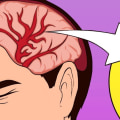Autism spectrum disorder (ASD) is a complex condition that affects each individual differently. There is no cure for autism, but experts agree that the best way to manage symptoms and develop independence skills is through ABA therapy. Early intervention through skills training and behavior modification can produce excellent results, and many children with autism and other autism spectrum disorders can lead relatively normal lives. Most researchers agree that there is no cure for autism, but they are beginning to explore how common it may be for some children to overcome the condition.
A recent clinical report found that approximately 9% of children diagnosed with early autism did not meet the criteria for diagnosing autism in early adulthood. To be included in this group, children had to have had a verified early diagnosis of autism and no remaining autism symptoms. It is important to remember that even if your child has not been officially diagnosed with ASD, he or she may benefit from certain treatments. Each of these treatments is individualized to maximize the client's ability to function by reducing symptoms of autism spectrum disorder.
This type of educational and behavioral treatment addresses the symptoms of autism: altered social interaction, communication problems, and repetitive behaviors. In addition to lifestyle and diet modifications, researchers are also looking at several other studies, such as the ability to detect autism during pregnancy, the impact its genes have on the diagnosis of autism, and the future of therapies derived from cord blood. When autism spectrum disorder ranges from mild to severe, Woods said most, if not all, treatment strategies will address and involve some form of speech therapy, behavioral therapy, and occupational therapy. It can also increase the chances that a child with childhood autism will be able to go to school and participate in typical activities. Child development experts agree that a child with autism should be treated as soon as possible after diagnosis.
One analysis suggested that some young people in the optimal outcome group are a little more socially awkward than their peers, but they are perceived as more likable than those who never had autism or who still have autism but work well. This year, her developmental pediatrician, autism specialist Lisa Shulman, judged that she no longer meets the criteria for a diagnosis of autism. According to the DSM, anyone who has been correctly diagnosed with autism will always be autistic, even if they don't seem to have the symptoms of autism.




